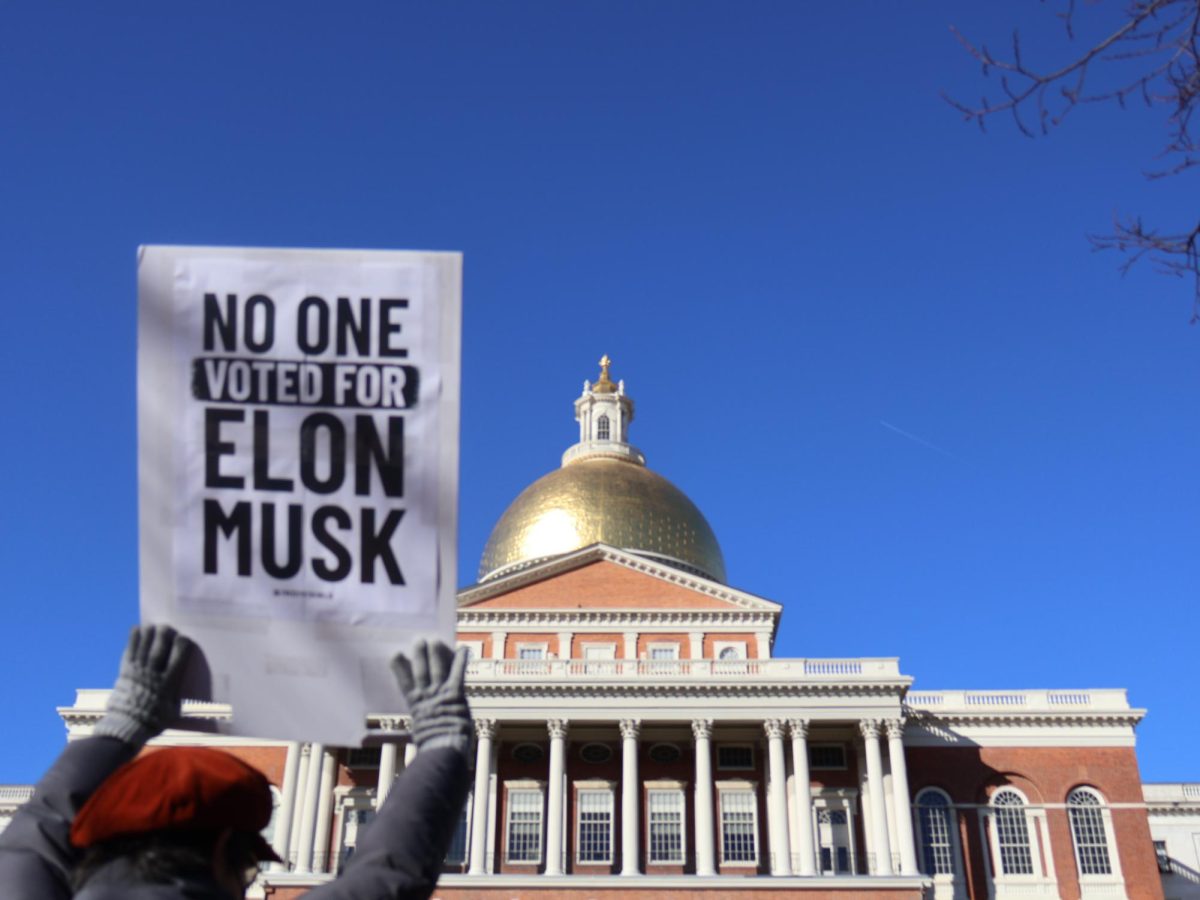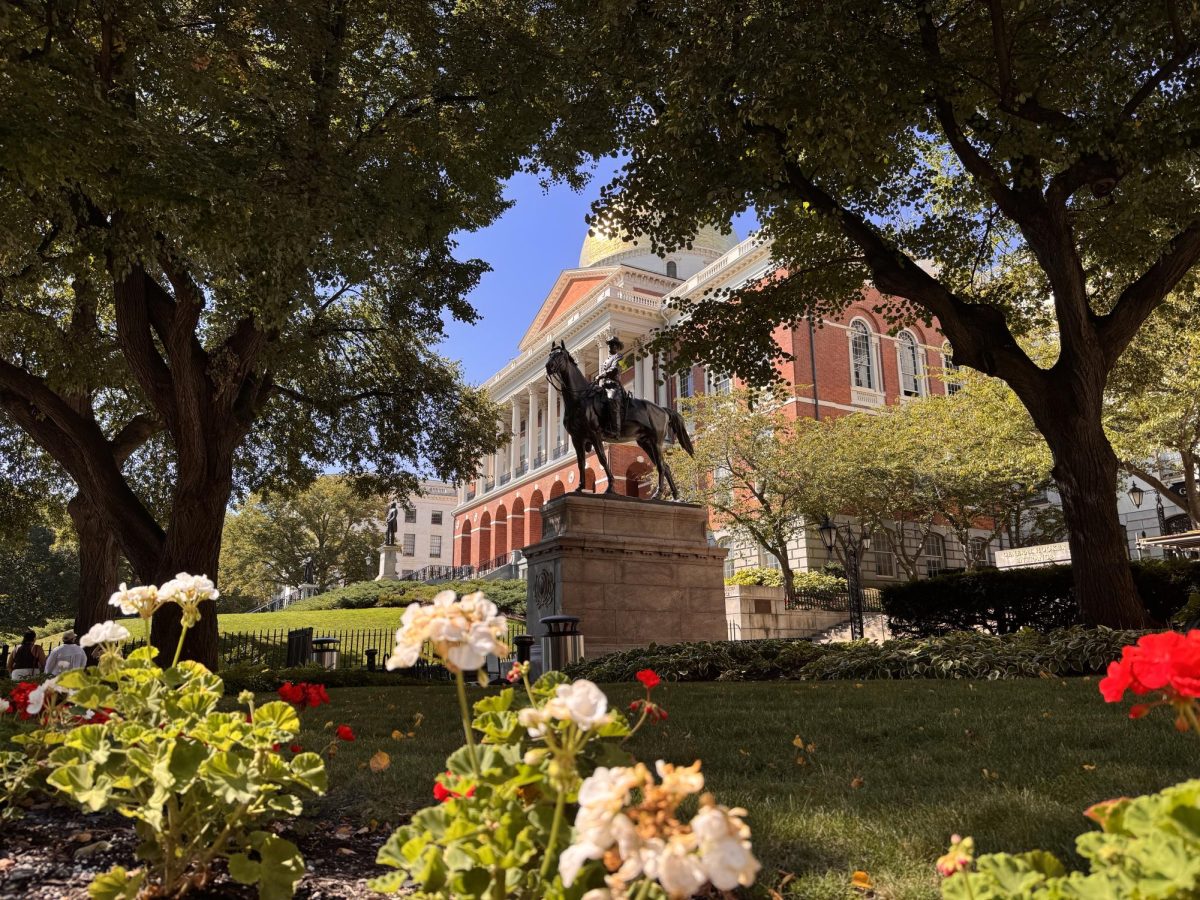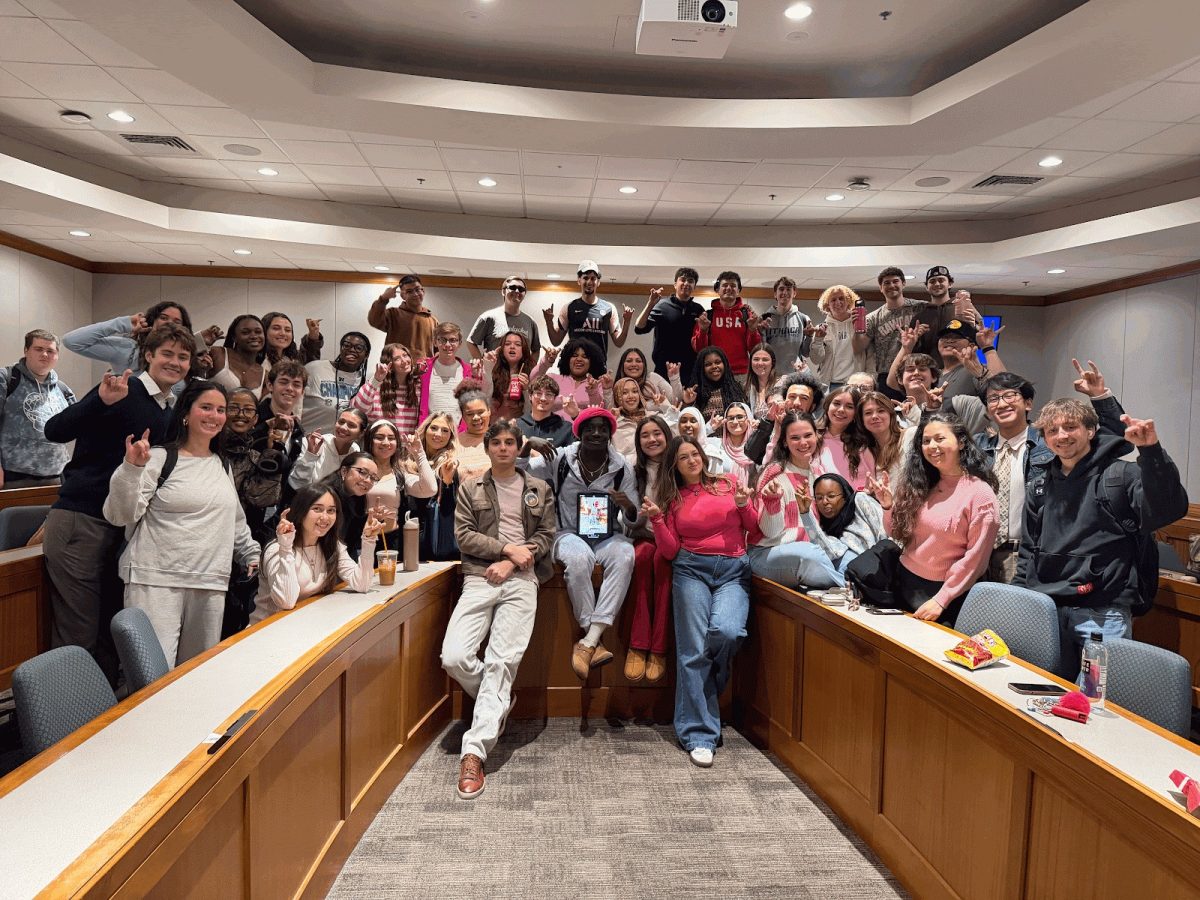With major Boston universities exceeding $100,000 price tags, and Suffolk University’s own tuition and extra costs ballooning 5.67% for the 2025-26 school year, financial strain for college students is becoming an intense burden.
This burden is only further bloated by President Donald Trump’s tariffs on foreign imports, including a 10% increase on all imports and facing several countries with reciprocal tariffs on his “Liberation Day” April 2. Some of the worst of these increases were imposed on Asian nations like Cambodia, at 49%, and major trade partner China, at a total of 54% including former tariffs.
These tariffs set forth a sell-off in major global markets, marking the days preceding the tariff announcement as some of the worst since 2020.
With reeling markets worldwide and the imposition of extensive tariffs and skyrocketing import prices, college students will face an increasingly strained financial situation. Here’s what college necessities could see swollen sticker prices on and strain student bank accounts.
Technology prices expected to rise
Making good on former promises, China imposed a reciprocal retaliatory tariff on the U.S. after Trump’s announcement. Apple’s primary manufacturing location is in China, which produces critical software for the iPhone and other smart products.
Smart products, whether phones, tablets or laptops, have become necessities in college classrooms, with students often having more than one. Apple surpassed 2 billion in-use products worldwide in 2023 and 60% of Apple consumers own 3-4 of the company’s core products, coined an “Apple ecosystem.”
For college students looking to avoid sticker shock, it may be the time to make some upgrades to hardware. If Trump’s tariffs go into effect, Apple’s tariff could trickle down to consumers. Projections done by Reuters predict a price increase to $2300 for an iPhone 16 Pro Max at the high-end of phone price bloats. Even more advanced and expensive products from the company would follow.
Fashion industry giants taking on extra prices
For many college students, taking on a personal fashion sense is a big part of moving to college. The accessibility of affordable shoes and apparel is expected to dwindle with the impact of tariffs.
The U.S. imports 97% of apparel according to the Associated Press, which has been outsourced to several Asian nations — including China, India and Vietnam — all experiencing tariffs well over 30%.
Foreign factory labor has kept costs down in the U.S. for clothing brands and brands are unlikely to absorb extra costs from tariffs on their own profit. The anticipated price tag vertical will affect popular brands for college students, like Nike, Lululemon and American Apparel, who have nearly all manufacturing assets overseas.
Student-athletes could see a $155 pair of running sneakers increase to $220, and anyone requiring work boots for a job may end up paying a near $40 dollar increase on the footwear, according to predictions from Footwear Distributors and Retailers of America.
When every penny counts in college, the small luxuries many students were able to enjoy through retail may become widely unattainable.
Sweet treat and coffee prices skyrocket
South American countries supply 80% of coffee products in the U.S., according to the Department of Agriculture. Brazil and Columbia face Trump’s 10% tariff on imported goods, a small but sharp sticker change for an already highly expensive commodity like coffee.
Another popular robust coffee import is from Vietnam, which is facing a 46% reciprocal tariff from Trump. The sharp increase could end coffee trade with the country altogether and decrease the product’s affordability and accessibility to everyday consumers.
The U.S. is the world’s biggest coffee consumer, and college students who study late and get up early make up a significant portion of these consumers. Daily Dunkin’ coffees could end up costing far more than students can brace for.
Chocolate and cocoa beans are popular imports in the U.S., which doesn’t harbor climates conducive to the crops. Top cocoa exporters like Germany and the Ivory Coast face higher tariffs than the 10% general import tariff, which could make sweet treats for college students far from the quick spending trip it often is. The pocket draining for a pastry or a coffee on any given day could add up through a busy and tense semester
Tariffs continue to fluctuate as President Trump opens up conversations about global trade to impacted countries, but they have already sent companies and individuals reeling and caused stock market free fall.



















